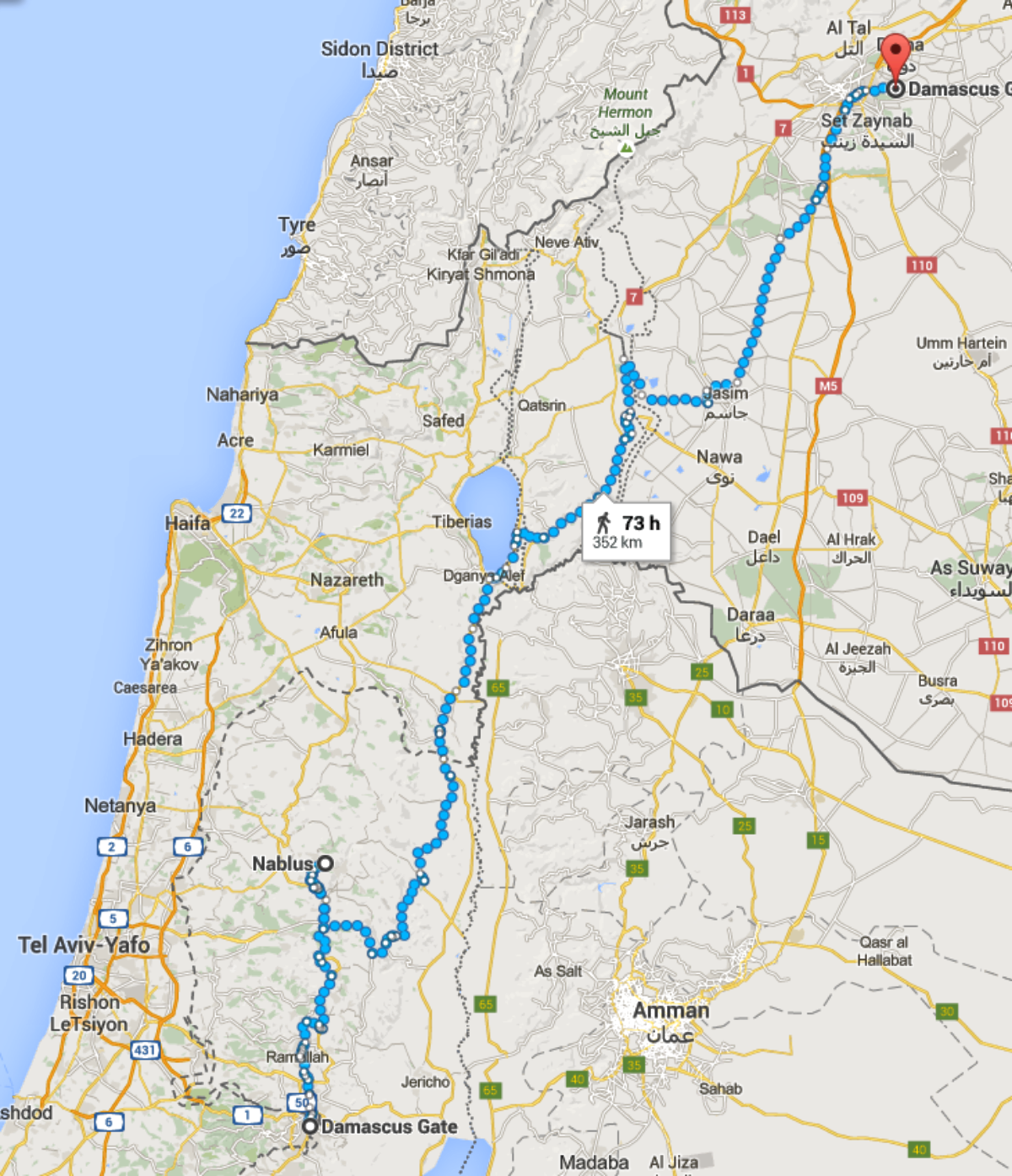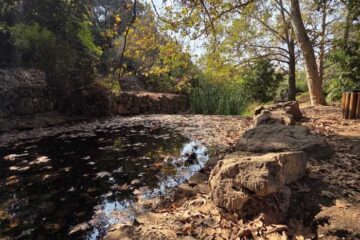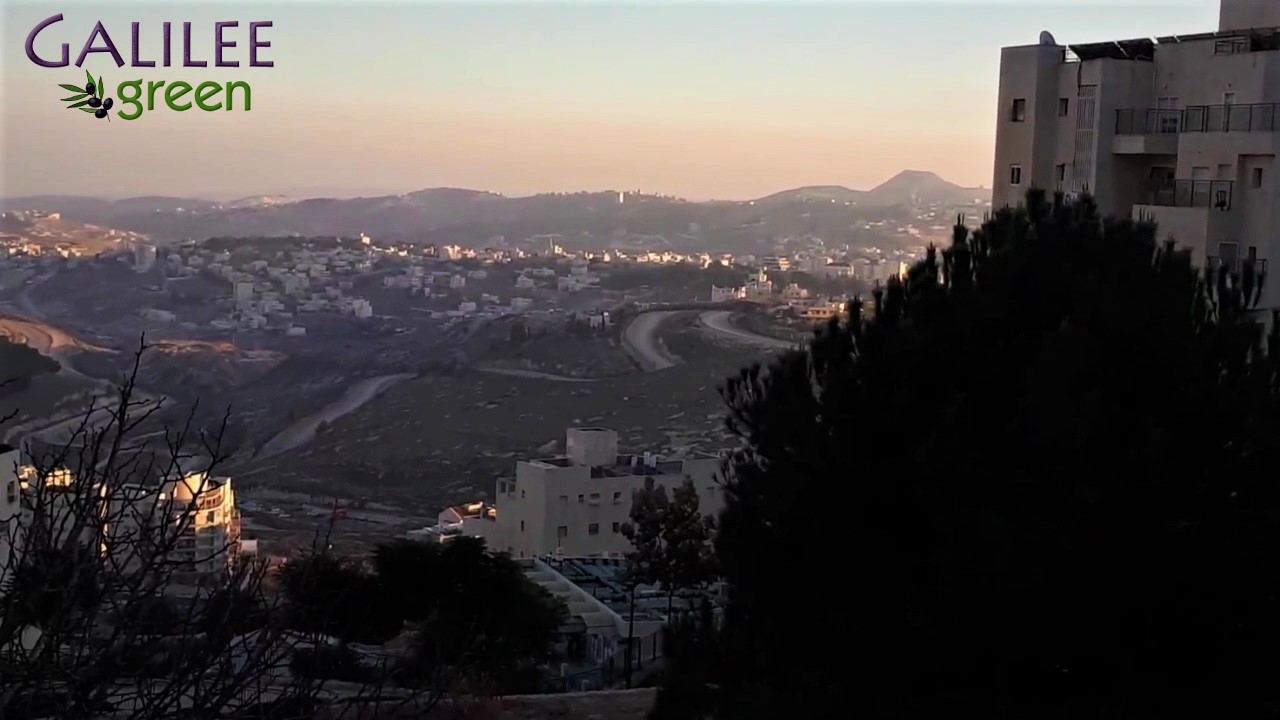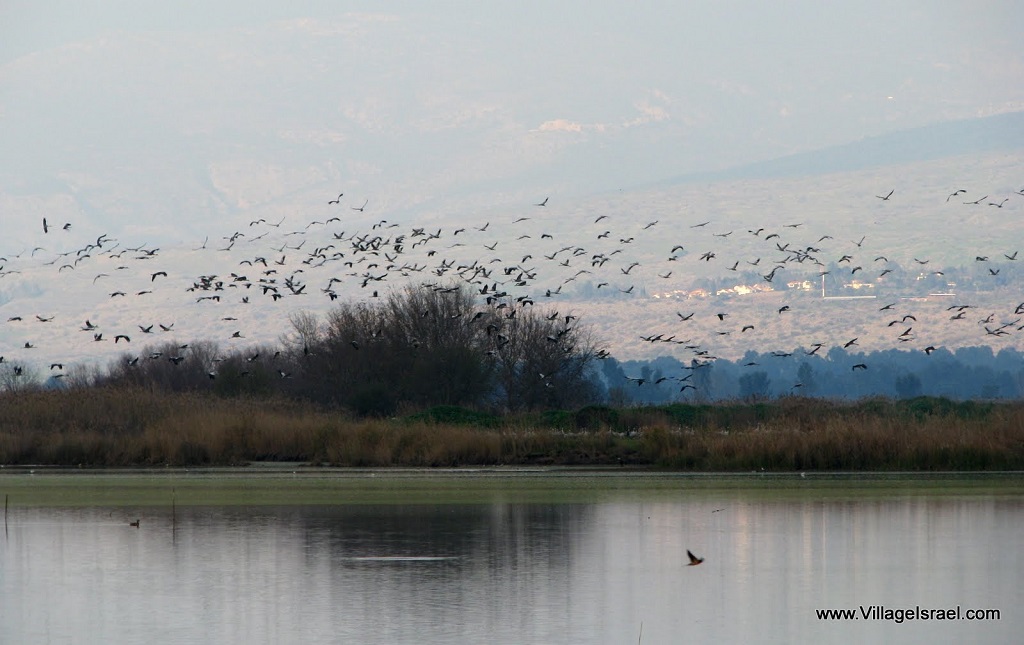When pilgrims came to Jerusalem for the festivals (or any other reason) and they were ready to return home, they would ask the local people, “Which gate do I exit if I’m going to Jaffa?” or “Where is the Jaffa Gate?” The road from Jaffa Gate headed west toward Jaffa (Yafo) and the Mediterranean coast.
The road leading away from this gate pictured above led north. Most “local” pilgrims would be headed toward the City of Shechem. So in Hebrew it became known as “Sha’ar Shechem.” (Shechem Gate). Shechem is the final resting place of Joseph, as mentioned in Joshua 24:32 —
The bones of Joseph, which the Children of Israel brought up out of Egypt, were buried in Shechem in a parcel of land Jacob bought from the sons of Hamor, father of Shechem, for a hundred pieces of silver.
In the year 72CE Roman Emperor Vespasian destroyed the City of Shechem and built a new city 2 kilometers west of the ruins. He called it Flavius Neapolis (new city).
When the Muslims conquered the area in the year 636 CE, they Arabicized the name of the city to Nablus. (Arabs cannot pronounce the letter “P.” They say “B” instead. Hence the irony that they cannot say, “Palestine!”)
So the gate above is also called “Nablus Gate.”
International travelers and pilgrims leaving Jerusalem would be heading to toward the nearest international city which would be Damascus, which is also to the north along the road leading away from the gate. Some Israelis will call the gate “Sha’ar Dameseq” and in English it is universally known as “Damascus Gate.”
For your information it is about a 15 hour walk to Shechem/Nablus and about a 73 hour walk to Damascus if you are a serious Pilgrim





3 Comments
michael stafford · June 19, 2016 at 3:27 pm
What might the phrase “fullness of Shechem” mean if anything?
Galilee Green · June 19, 2016 at 9:59 pm
Hi Michael… are your referring to a particular verse in the Torah? I’m not so familiar with english phraseology and translations. If you tell me the verse(s), I can look at the Hebrew and commentaries and help you out.
michael stafford · June 19, 2016 at 10:16 pm
Not sure if there’s any particular verse, just the idea or what the phrase might mean. I’ve studied the Torah about it in various places, just appreciated your article and wondered if you had insight.
Abram traveled through the land to the place called Shechem, as far as the oak of Moreh. At that time the Canaanites were in the land.
Abram traveled through the land to the place called Shechem, as far as the oak of Moreh. At that time the Canaanites were in the land. Gen 12:6
So Joshua made a covenant with the people that day, making statutes and ordinances in Shechem. Joshua 24:25